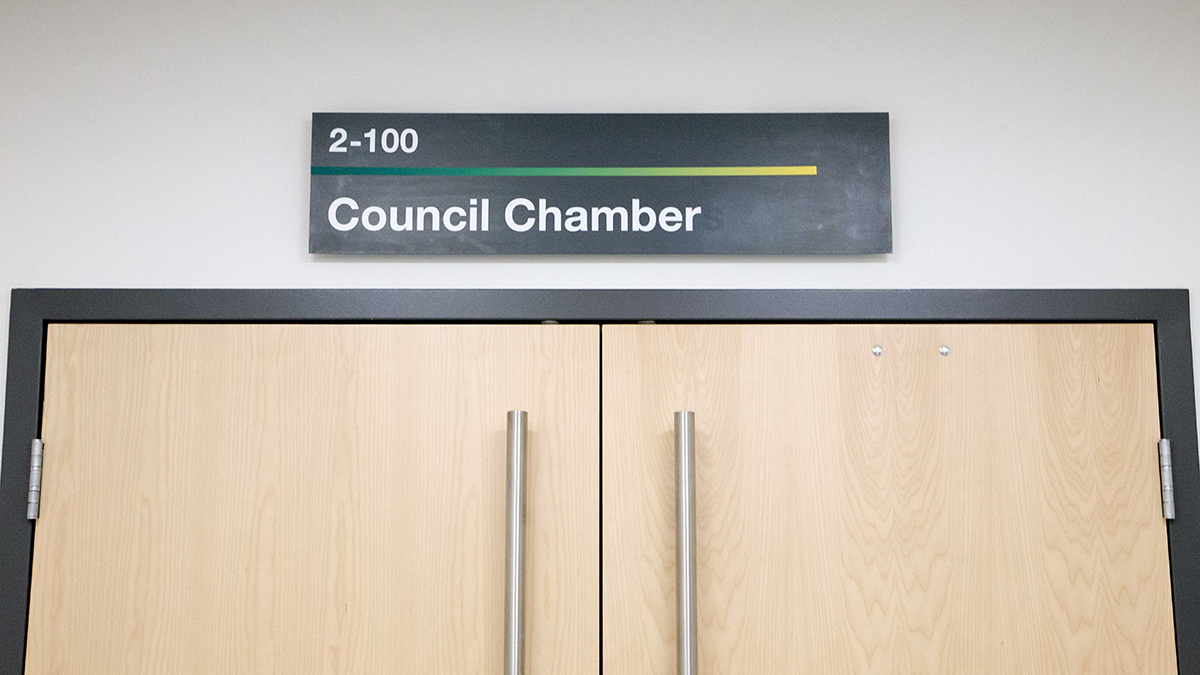Three Students’ Councillors resigned last semester citing frustration with the system
 Joshua Storie
Joshua StorieSince November, Students’ Council has seen three councillors resign. These councillors say they left because they felt disenfranchised by the system.
Former councillors Navneet Gidda (Arts), Emily Howell (Education), and Haley Lefferson (Agriculture, Life & Environmental Science) resigned in November. All three said they did not have the experience they expected while on Council due to “breakdowns in the democratic process.”
“I just wanted to make a difference and a change,” Lefferson said. “That doesn’t seem to be what’s happening on council.”
According to the Students’ Union’s website, Students’ Council is the “ultimate authority in the Students’ Union.” There are 32 elected councillors representing their respective faculties. The executive, consisting of the president and four vice-presidents, operate the daily activities of the SU and councillors are to exercise oversight of those activities, said Students’ Union president Marina Banister.
“The way the SU is structured, Council is supposed to be at the very top,” Howell said. “(But) I felt like my role was completely useless.”
Howell resigned first, followed by Gidda and Lefferson. At the time, none of them knew the others were stepping down.
Currently, the executives present reports to Council about their work, from events they attend to their advocacy work with government. However, when it comes to some initiatives, Gidda said she believes councillors are not a large enough part of the decision making process and instead, executives place what projects they want to spearhead within their reports and councillors don’t get to vote on whether they should go ahead.
Gidda said GovWeek, an initiative started by Banister last year to highlight student governance on campus, is an example of an event that was introduced to Council in an executive report and not as a motion. This meant that councillors were unable to vote on whether the event should continue. Though a GovWeek advisory board was created to help councillors voice opinions on the event, Gidda said the board was “ineffective” and that the process should have “been more democratic.”
Banister said the current council has a positive climate, and that it is doing a good job at keeping executives accountable.
“As an executive, we take council’s opinion very seriously. So, I think the relationship should be built on trust and respect,” she said. “I certainly have the upmost respect for all the people who dedicate their time to council. I served as a councillor for two years before I served as an executive and I think sometimes if you are an observer looking in things can look critical or heated but that’s why we are there. The council is there to help make sure the executives are accountable, which we are.”
While Banister isn’t sitting on any council committees this year, she has visited several of them to participate or observe.
“I have always found the environment (in committees) to be very welcoming,” she said. “We are there to help each other in the spirit of good governance and to do what is best for students.”
For Howell, the experience in committees was usually negative.
“I felt like the chairs of committees dictated what happened and the members did not have any say,” she said.
Both Gidda and Howell recounted negative experiences with some of the executive members of the SU. Howell said the stifling of the freedom of speech was one of the biggest reasons for her resignation and Gidda described one instance where she was asked to voice her concerns to Banister and become part of the solution instead of speaking out publicly against GovWeek.
“I was doing what I was supposed to be doing,” Gidda said. “If we aren’t allowed to vocalize our concerns and those raised by students then what is the point of having Council?”
Banister said she has met with many of the councillors who later resigned, and asked them to indicate any concerns they had about council and the Students’ Union.
“In my opinion, all those discussions were very beneficial and ultimately I am not going to speculate why certain people chose to or not to resign,” she said. “If they say it was for a personal reason I respect that. My experience as the president in the Students’ Council so far has been positive and most councillors that I have talked who have had one-on-one sit downs have said they also have had positive experience.”
Banister believes the SU can always improve and is always looking to become more of a conducive environment.
“I have never said no to meeting with a student who wanted to have a meeting with me and that absolutely extends to our student councillors as well,” she said. “So, moving forward the first step is identifying what the real or perceived problems are and it is up to the elected officials to see problems that they can hopefully solve to be a contributing member of that solution.”
She added that resignations are ultimately up to the individuals. New councillors have already filled the three vacated seats.
For Howell and Gidda, the decision to resign was not an easy one.
“A lot of people are against resigning in protest because you lose that power to make changes,” Gidda said. “But we didn’t have any power to begin with.”




